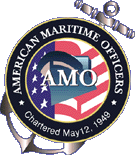 Section Front Front Page |
 |
|
|
| Maritime Security Program
renewal a national priority |
| Congressman Hunter, Maritime Administrator Schubert cite program's crucial role |
| A renewed Maritime
Security Program was agreed to as a priority March 14 by Rep. Duncan
Hunter and Maritime Administrator William
Schubert. The occasion was a hearing by the House Armed Services Committee's Oversight Panel on Merchant Marine, chaired by Rep. Hunter, a Republican from California. Schubert was before the panel to discuss the administration's proposed fiscal 2003 budget for the Maritime Administration, an agency in the Department of Transportation. Both said the MSP is essential, and both said reauthorization must be considered before the program's statutory expiration in three years. The MSP, which was authorized in the Maritime Security Act of 1996, provides each of 47 U.S.-flag merchant ships with $2.1 million in operating assistance each year while the ships are engaged in commercial foreign trade. In exchange, the ships and their crews are to be made available to the Department of Defense as needed for strategic sealift or other military support services in national security emergencies. American Maritime Officers represents the engine and deck officers on four container ships and three car carriers enrolled in the program, which must be funded each year through direct appropriations. The administration has requested full funding of $98 million for the MSP in fiscal 2003, which begins next Oct. 1. "We need to get started soon on reauthorization of the current program," the Congressman said to Schubert in his opening statement. "I know the task will be difficult, but I want to put the administration on notice now--and your department and agency in particular--that we intend to get a new program in place before its scheduled expiration in 2005." Rep. Hunter said he would meet with defense planners, including the leadership of the U.S. Transportation Command (TRANSCOM), to "at least start the process." He also said he was "particularly pleased" to see that jurisdiction over the MSP was not transferred from MARAD to the Department of Defense, as proposed by the White House a year ago. "As you know, this panel found absolutely no basis for the recommendation," he told Schubert. "Frankly, it lacked merit, and no one could identify even one penny of cost savings." In his prepared testimony, Schubert said MARAD supports "an MSP follow-on program" to "assure the continued availability of U.S.-flag commercial ships and U.S. citizen crews to meet U.S. national security interests." Schubert said a renewed or revised MSP "should consider a variety of factors," including the military utility of participating ships and the assured availability of "a U.S. citizen seafaring pool to crew both the commercial and government sealift fleets." One "primary concern" will be the program's cost, Schubert said. He emphasized "a realistic level of financial support to ensure continued fleet availability," coupled with "incentives" to attract "the most modern and efficient vessels" to the program. "MARAD is currently participating in discussions with DOD and meeting with maritime industry representatives to explore options for MSP renewal," Schubert continued. "Other areas that will need to be addressed are the number and mix of vessels, the length of the program, maximum vessel ages, the level of financial support, and citizenship." |
| Front Page |